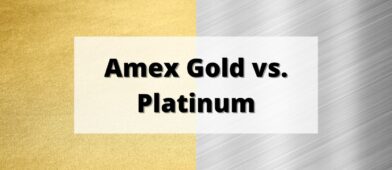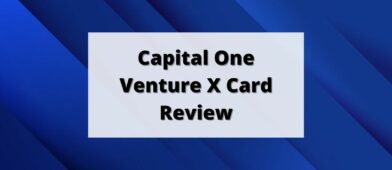Indigo Platinum Mastercard

Product Name: Indigo Platinum Mastercard
Product Description: Indigo Platinum Mastercard is a low credit limit credit card (as low as $300) that charges a high annual fee ($75-$99) designed to help you build or rebuild your credit.
Summary
The Indigo Platinum Mastercard is issued by Celtic Bank and serviced by Concora Credit Inc. Concora operates several credit products in this category (low to no credit), including Destiny and Milestone Mastercard.
Overall
Pros
Easy to qualify
No security deposit required
Pre-qualify without a credit check
Enjoy Mastercard benefits
Cons
High annual fee for most cardholders
Low starting credit limit
No credit card rewards
High APR
If you’ve never had credit or your credit is poor, the Indigo Platinum Mastercard can help.
Designed to help you build credit, Indigo makes qualifying easy by disclosing your annual fee and APR before you apply, making it a low-risk proposition. And unlike with a secured credit card, you won’t have to contribute a security deposit.
But there are tradeoffs in the form of a high-interest rate and annual fee for most cardholders. In this Indigo Platinum Mastercard review, I cover the card’s features, including the positives and negatives, and share some Indigo Mastercard alternatives.
By the end, you should be able to determine whether Indigo Platinum should play a role in your credit-building strategy.
Table of Contents
What Is the Indigo Mastercard?
The Indigo Platinum Mastercard is a credit card issued by Celtic Bank and is for people with little credit or who are rebuilding credit.
Your initial credit limit is as low as $300, and the annual fee can be as high as $99. This card doesn’t require an initial credit check (a hard inquiry is necessary to apply).
You can pre-qualify for this card to see your potential annual fee and APR without undergoing a credit check.
Who Can Apply for the Indigo Credit Card?
It’s easy to qualify for the Indigo Mastercard, but there are still some basic requirements:
- You must be at least 18 years old (19 in Alabama);
- have a valid Social Security number;
- satisfy the income and debt requirements (i.e., no pending bankruptcies)
Indigo Platinum Mastercard Fees
The following is a list of all fees you might expect to pay when you own an Indigo Mastercard, including the purchase and cash advance APRs:
Annual Fee
The standard annual fee is $75 for the first year and then $99; however, there are two card products for which you may qualify. The other annual fee possibilities are $59 or $0, but you will need a strong application, including good credit, to be eligible for the no annual fee card.
Other Fees
Some of the other incidental fees you hopefully won’t encounter include:
- Purchase APR: 24.9%
- Cash Advance APR: 29.9% (plus 5% or $5, whichever is greater)
- Late Payment Fee: $40
- Overlimit fee: $40
- Returned Payment Fee: $40
Indigo’s APR of 24.9% is very high, higher than most standard credit card interest rates, making it especially important to pay off any balance in full each month.
Indigo Mastercard Advantages
Builds Credit
The primary reason to consider this card is for the opportunity to build credit when you don’t qualify for more lucrative rewards cards. Indigo reports your monthly payments to the three credit bureaus (i.e., Equifax, Experian, and TransUnion).
The initial hard credit check will temporarily lower your score. But, as you establish a positive payment history, your score will improve.
No Security Deposit
It’s possible to qualify without a security deposit for an initial $300 spending limit like a secured credit card requires. This benefit is helpful as you may not have the spare cash for the security deposit until you graduate to an unsecured credit card and refund the deposit.
No Credit Check
You can pre-qualify with only a soft credit inquiry that won’t penalize your credit score. This feature is helpful as you can estimate your approval odds and credit card fees before applying.
If you decide to apply for the Indigo Credit Card, the bank performs a hard check which temporarily penalizes your score. The inquiry also remains on your credit report for 24 months.
Additional Mastercard Benefits
This card has near-universal acceptance as it’s a Mastercard. Nearly every merchant in the world accepts Visa and Mastercard credit cards.
Some of the additional benefits that Mastercard provides:
- Zero liability for fraudulent purchases
- Identity and fraud monitoring
- 24-hour emergency assistance (additional fees may apply)
Learn more about the Indigo Platinum Mastercard
Indigo Mastercard Drawbacks
High Annual Fee
Your annual fee can be as high as $99, making this an expensive starter credit card. This fee erodes your spending power and increases your credit utilization ratio as it’s charged on your first billing statement each year.
If funds are tight and you struggle to afford the fee, you may find ways to build credit for free. While paying an annual fee is a nuisance, it can be cheaper than making a refundable security deposit with a secured credit card to open your account.
Low Credit Limit
The initial $300 credit limit is competitive with similar cards but makes it challenging to maintain a low credit utilization ratio. You want to keep your credit utilization below 30% of your limit, so with Indigo, your balance shouldn’t exceed $90 with a $300 limit.
As a result, you will need to make frequent credit card payments to maintain a low balance. And you might be unable to cover all your monthly expenses with the card due to the low limit. If you want a higher credit limit, consider opening a secured credit card if you can afford the security deposit.
No Credit Card Rewards
This credit card isn’t a long-term solution as it doesn’t earn cash back despite requiring an annual fee. In this case, several starter credit cards intended for people with bad credit offer cashback.
Once your credit score climbs into the fair credit range (580+), it’s time to upgrade to a no-annual fee credit card that can also earn rewards.
Alternatives to the Indigo Mastercard
These platforms can provide similar results as the Indigo Mastercard with lower fees or better rewards. However, you may need to make a security deposit to qualify.
Petal 2 Visa Card
The Petal 2 Visa doesn’t have an annual fee or security deposit. It also comes with rewards, as purchases earn up to 1.5% back (1% during the first 12 months). You may also qualify for a higher credit limit as your potential spending limit can be between $300 and $10,000.
Unless you have very poor credit, the Petal 2 Visa may be a better option than the Indigo Platinum Mastercard because of the rewards and the no fees. Targeted Petal 2 Visa users are those with limited credit but who have a solid banking history.
Check out our Petal 2 Visa Card review for more details.
Petal Credit cards are issued by WebBank, Member FDIC
Extra Debit Card
The Extra Debit Card doesn’t have a revolving balance like a credit card. Instead, it syncs to your bank account and deducts your purchase amounts from your bank account daily. Your payment history reports to the Equifax and Experian bureaus. You can also earn rewards on your purchases.
Because it’s not a credit card, it lacks some flexibility and can only be used inside the U.S. On the flip side, no credit check is required to obtain a card. Membership plans start at $149 per year or $20 a month.
Read our Extra Debit Card review for more information.
Chime Credit Builder
The Chime Credit Builder Card is one of our favorite secured credit cards as there is no annual fee, and you get complimentary access to a free checking and high-yield savings account. Your spending limit is similar to your refundable security deposit, and there is no hard credit check to apply.
After opening a free Chime Checking Account, you’re eligible and have $200 in monthly deposits. Find out more in our Chime Credit Builder card review.
Chime is a financial technology company, not a bank. Banking services provided by The Bancorp Bank, N.A. or Stride Bank, N.A., Members FDIC. The Chime Visa® Debit Card is issued by The Bancorp Bank or Stride Bank pursuant to a license from Visa U.S.A. Inc. and may be used everywhere Visa debit cards are accepted. Please see back of your Card for its issuing bank.
Indigo Mastercard FAQs
There is currently no way to increase your credit score above your initial amount. Other cards may offer this possibility with recurring credit account reviews. As a result, you will want to close this account as soon as you qualify for another card with a higher limit and a lower annual fee.
Yes, Indigo Mastercard performs a hard credit check when you apply for the card. Thankfully, you can pre-qualify with only a soft inquiry.
No, there are no purchase rewards. However, your monthly payments report to all three bureaus to improve your score and qualify for cashback credit cards.
You can get support online or call a toll-free phone number when you need help with the Indigo Platinum Mastercard.
Indigo Platinum Mastercard Review: Summary
The Indigo Platinum Mastercard can be an easy way to build credit when you don’t have the funds for a security deposit. Because it’s a Mastercard, it also comes with the peace of mind of near-universal acceptance.
But you must be comfortable with the potentially high annual fee, high APR, and low credit limit as a tradeoff. If not, the Petal 2 Visa and Chime products might be more attractive. Also, the lack of cashback is a nuisance as more and more credit builder cards offer this perk.



